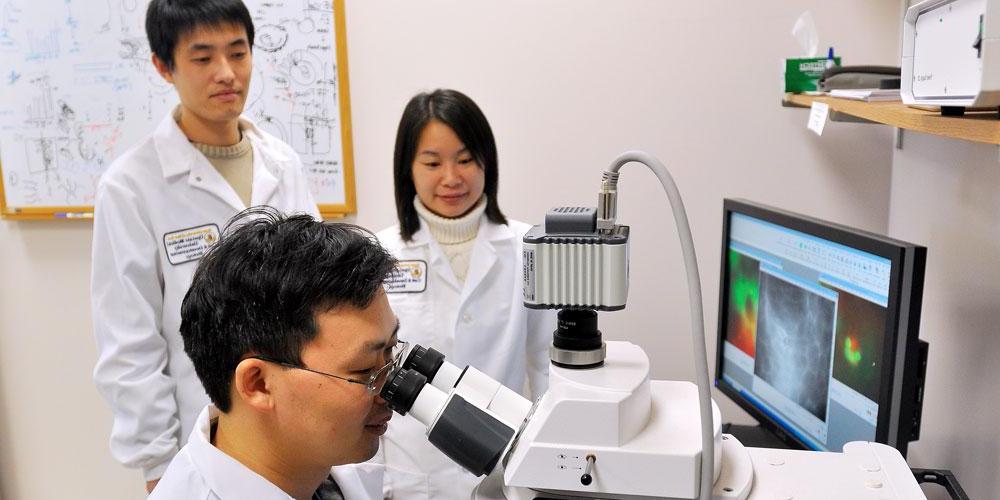Training
We provide outstanding opportunities to both graduate students and postdoctoral trainees to ensure broad exposure to academic research, with professional development training to build independence. We offer a variety of opportunities for participation in seminars, career-based workshops, teaching experience, as well as links to the CNY Biotech Accelerator, including biotech innovation competitions and internship opportunities.
Postdoctoral Training
In addition to the collaborative scientific environment within the department, postdocs have exposure to dedicated scientific events such as the “Beyond the Doctoral Research Day” within the university as well as available travel awards to present at national and international conferences. The Office of Postdoctoral Affairs additionally provides support and resources, from grant writing guidance to career counseling for postdoctoral fellows and associates. For current opportunities, please see the CDB open positions or check the websites for the individual laboratories of interest.
Graduate Program
Cell and Developmental Biology offers opportunities for Masters, MD/Ph.D., and Ph.D. programs. While some of the core curriculum is shared, each program has its own criteria and requirements that can be found in the Course Selection handbook.
Ph.D. Students apply to the Biomedical Sciences graduate program, with requirements defined by the College of Graduate Studies. The curriculum provides a broad background in basic biomedical sciences in the first year, followed by more specialized coursework in the second year depending on the student's interests and needs. Research is begun in the first year, with research rotations in three different laboratories across the university. After rotations, students joining a research laboratory in CDB will officially enter the Cell and Developmental Biology Program.
In the CDB program, career skills such as grant and manuscript writing, teaching, and oral presentations of scientific data are emphasized. Students also have the unique opportunity to participate in research training programs offered at other institutions such as Cold Spring Harbor Laboratory, Marine Biological Laboratory (MBL), Woods Hole, and Mount Desert Island Biological Laboratory. "Techniques courses" to gain different points of view or ancillary techniques that broaden the student's research training are also encouraged. Students are also encouraged participate in local, national, and international conferences where they can present their research to the broader research community. Detailed information on the course requirements, qualifying exams, advisory committees, doctoral dissertations, and more can be found in the Course Selection handbook.
Undergraduate Training
Laboratories in CDB also participate in the Summer Undergraduate Research Fellowship program. Local university undergraduates may also gain research experience and training, dependent upon current laboratory availability.

